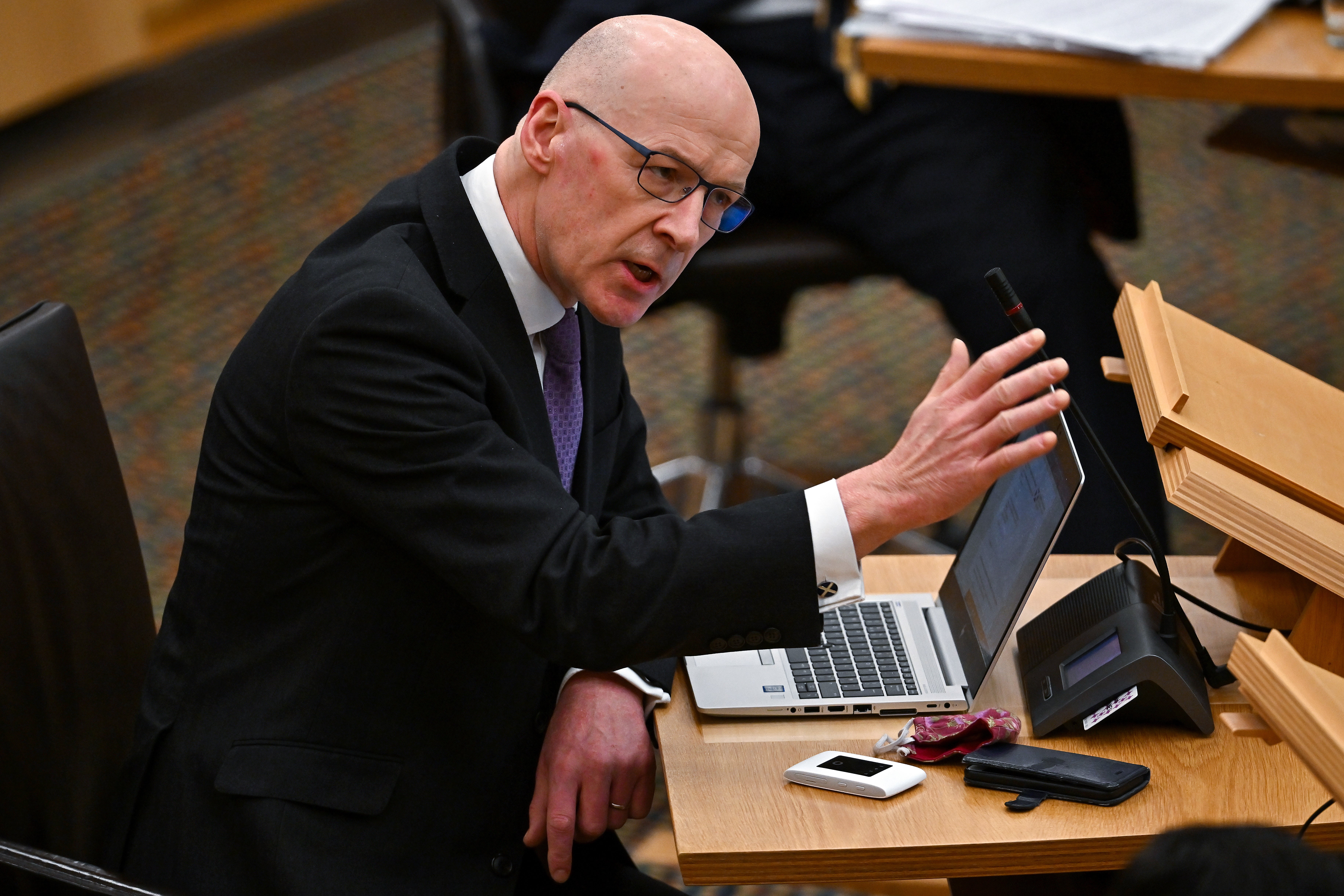John Swinney: Omicron wave came close to ‘tipping over’ NHS in Scotland
The Deputy First Minister’s comments came as the country reported 16 more coronavirus-linked deaths on Thursday.

Your support helps us to tell the story
From reproductive rights to climate change to Big Tech, The Independent is on the ground when the story is developing. Whether it's investigating the financials of Elon Musk's pro-Trump PAC or producing our latest documentary, 'The A Word', which shines a light on the American women fighting for reproductive rights, we know how important it is to parse out the facts from the messaging.
At such a critical moment in US history, we need reporters on the ground. Your donation allows us to keep sending journalists to speak to both sides of the story.
The Independent is trusted by Americans across the entire political spectrum. And unlike many other quality news outlets, we choose not to lock Americans out of our reporting and analysis with paywalls. We believe quality journalism should be available to everyone, paid for by those who can afford it.
Your support makes all the difference.The NHS came close to “tipping over” as a result of the Omicron variant of Covid-19, Deputy First Minister John Swinney has said.
The new variant emerged in December, quickly becoming the dominant strain across the UK and much of the world, with the Scottish Government projecting as many as 50,000 new infections every day.
While the number did not eventually reach that level, Mr Swinney told the Covid-19 Recovery Committee on Thursday the levels of coronavirus in Scotland nearly overwhelmed the health service.
Mr Swinney was speaking as the committee considered extending some emergency powers afforded to the Government for a further six months – a move opposed by the Scottish Tories.
Questioning the Deputy First Minister, Tory MSP, Murdo Fraser, said: “Given that we know the Scottish public respond very well to public health advice, why can’t we just trust people to follow that advice, because we know they will do that, rather than having these legal powers continuing?”
In response, Mr Swinney stressed the need for public health measures to be put in place quickly.
“Because we may face a deteriorating situation and we may have to take some more severe action – I hope we don’t have to, but we may have to,” he said.
“I’ve rehearsed with this committee before that on one Tuesday morning in November, the cabinet thought that the pandemic was pretty stable, that we could look forward to a pretty straightforward Christmas.
Omicron was the variant of the virus that came closest to tipping over Scotland's National Health Service. And it came very close
“And 48 hours later, (Transport Secretary) Michael Matheson was on a call with the United Kingdom Government applying travel restrictions on South Africa and various other African countries.”
He added: “Because Omicron had descended upon us and, bluntly, Omicron was the variant of the virus that came closest to tipping over Scotland’s National Health Service.
“And it came very close.”
Mr Swinney said that he wanted to make sure the Scottish Government had powers that “can be used if it needs to be used to protect the public”.
“I stress the word ‘can’ be used, not must be or will be, but can be used,” he said.
“In this particular situation, I and the Government is deciding to try to foresee some of the difficulties we might face and put in place a statute book that will give us the ability to respond in a way that we hope we don’t have to respond.”
Regulations that would extend the powers were passed by four votes to two at the committee, with Mr Fraser and fellow Tory MSP Brian Whittle voting against.
Mr Swinney’s comments come as Scotland has recorded 16 coronavirus-linked deaths and 7,195 new cases in the past 24 hours, according to latest figures.
It means the number of people who have died within 28 days of testing positive for Covid-19 has risen to 10,645.
There were 1,041 people in hospital on Wednesday with recently confirmed Covid-19, down 52 on the previous day, with 11 in intensive care, no change.
In addition, on Thursday, 13 confirmed Covid-19 patients had been in intensive care longer than 28 days.
So far, 4,433,961 people have received their first dose of a Covid-19 vaccination, 4,154,182 have received their second dose, and 3,415,942 have received a third dose or booster.